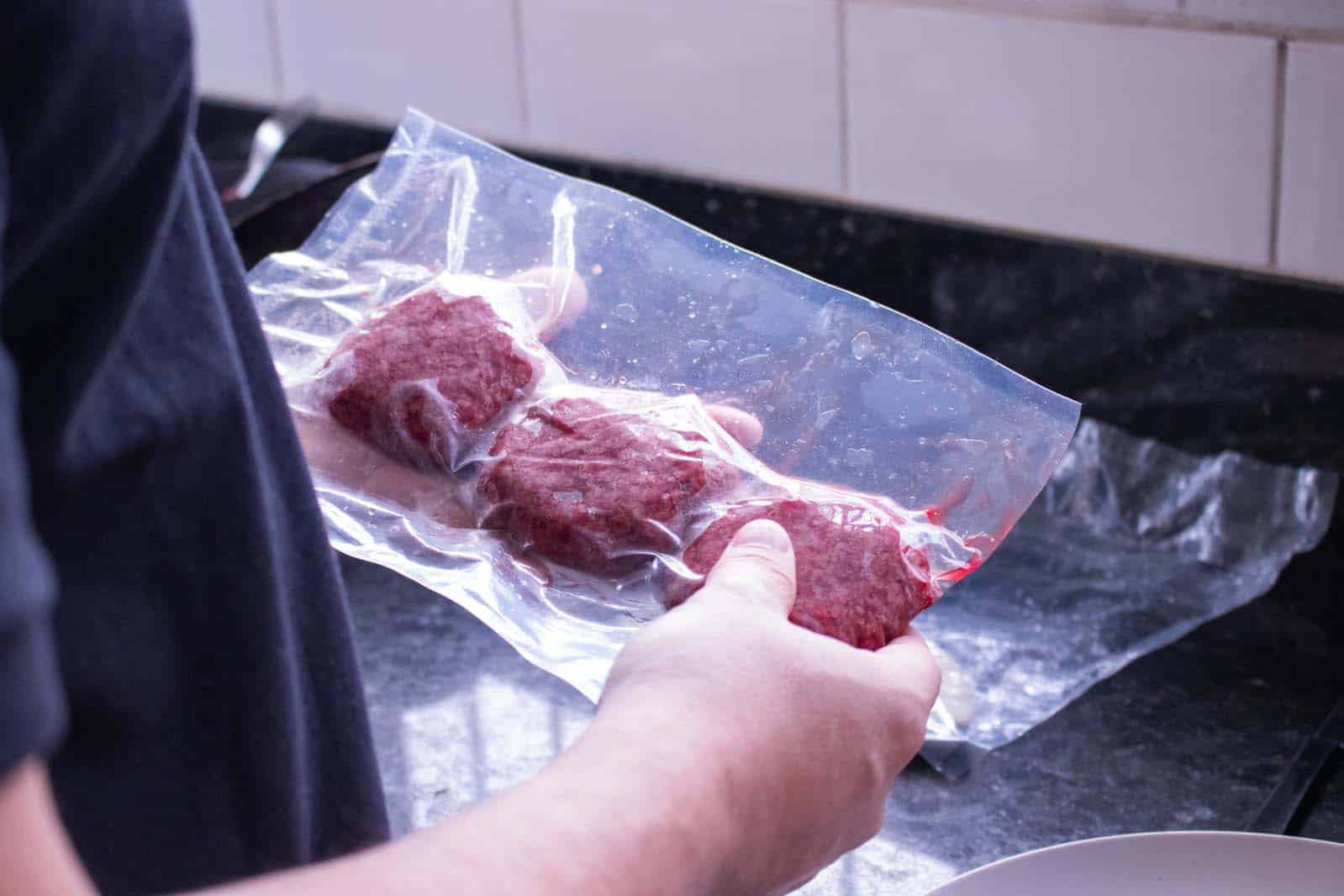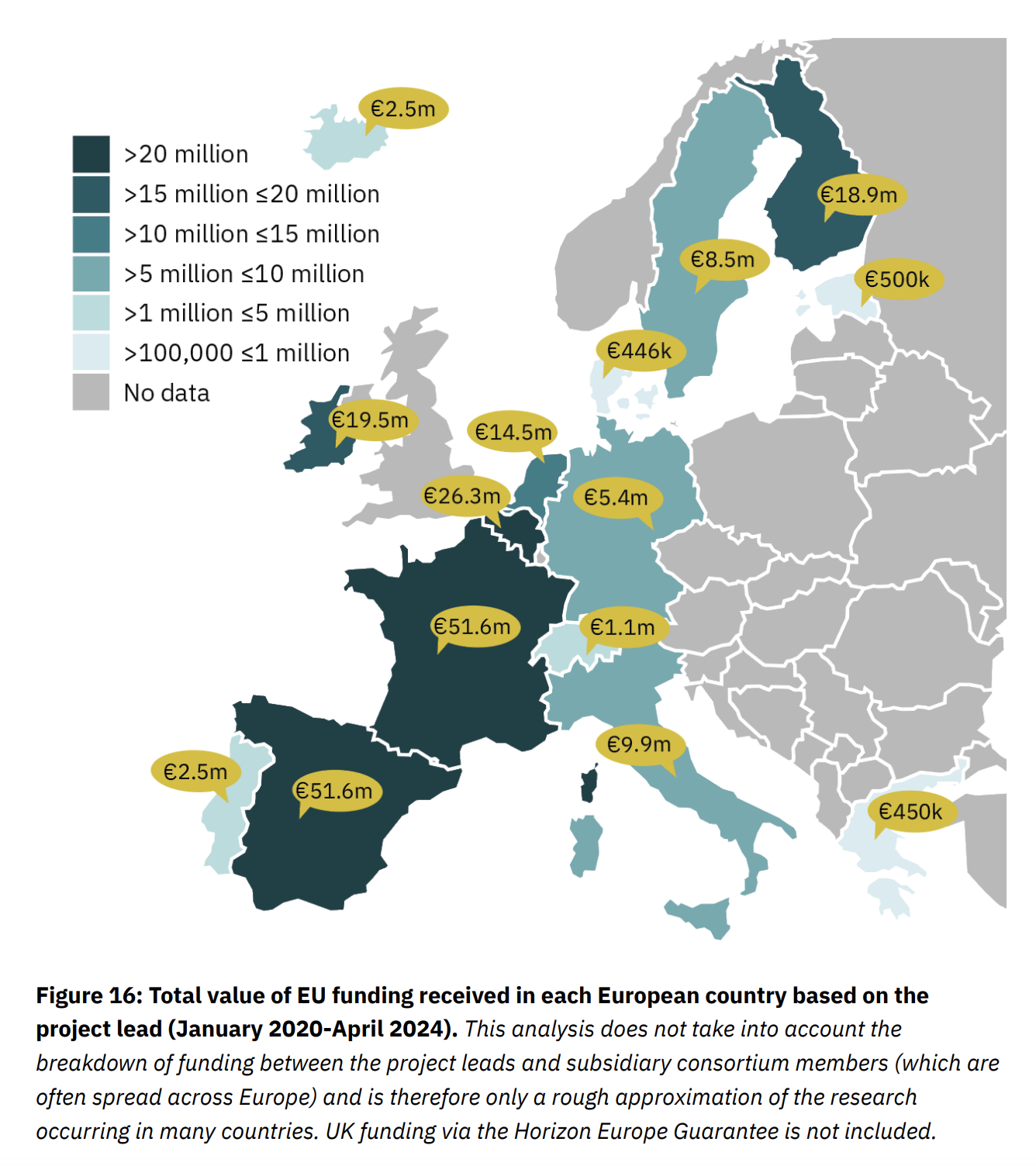Six Future Food Companies Gain Backing from EU Food Accelerator
4 Mins Read
At EIT Food’s new flagship event, Next Bite, six startups working in the future food space gained funding to test their technologies and accelerate their path to market.
From cultivated meat and mycelium protein to cell-based chocolate, the EU is investing tens of thousands in early-stage food tech startups to advance their route to commercialisation.
At Next Bite, the flagship event of EIT Food in Rome last month, the EU-backed accelerator programme announced the winners of the 2024 EIT Food Accelerator Network Tech Validation Awards, with 17 companies receiving grants between €20,000 and €50,000.
Of these, six startups are working on alternative proteins, cell-based cocoa or palm oil alternatives, shaping the future of an increasingly volatile food system hit by the climate crisis.
Which startups piqued EIT Food’s interest?

Esencia Foods, the German startup making clean-label whole-cut seafood analogues from mycelium, was among the biggest beneficiaries, receiving €50,000. The company debuted its fermentation-derived seabass and cod at the Anuga gastronomic fair in Cologne last year.
Two future food companies were awarded €30,000 from EIT Food. London startup Clean Food Group, which uses waste bread to ferment yeast into a palm oil alternative, will use the money to identify technology gaps and implement a clear product development roadmap.
Fellow UK startup Quest Meat is developing ingredients to make cultivated meat affordable and scaleable, and will use the €30,0000 to advance its edible microcarrier material Neutrix. It is collaborating with Campden BRI to conduct food safety screenings and nutritional composition testing to ensure the material meets international standards and can help expedite regulatory approval for cultivated meat products that make use of it.
Another British company, New Wave Biotech, received €20,000. It has created an AI-powered software to help precision fermentation companies optimise their downstream processing. It will use the capital to test and validate its technology with research organisation CPI to help clients gain confidence in its system’s predictions.
EIT Food deployed a further €20,000 to Israel’s Kokomodo. The company emerged from stealth this summer and produces cell-based cocoa for the food and beverage, supplements and cosmetics industries. It plans to enhance its product development efforts with the capital.
And finally, another €20,000 went the way of Sao Paulo-based Typcal under the Brazilian Tech Validation Award. The startup employs fermentation to make mycelium ingredients, including snacks and powders, for the food industry.

EU ramps up future food research investments
The winners of these awards will use the funding to run projects to test and accelerate their technologies further, in collaboration with EIT Food’s network of partner universities, research centres and facilities across the continent.
This is far from the first time the accelerator has poured money into the alternative protein category. Last year, it awarded a €5,000 prize to mycelium meat maker Bosque Foods and fermentation-derived seafood producer Pacifico Biolabs (both from Germany).
It also collectively invested €1.2M to 3D Bio-Tissues, BioBetter, LenoBio, and S2aquacolab to reduce the cost of culture media for cultivated meat production, as part of its Cultivated Meat Innovation Challenge in partnership with the Good Food Institute (GFI) Europe. And this year, its Seedbed Incubator includes methane-to-protein startup ChangeBio and cultivated meat tech species ForMeat.
Members of its 2024 Accelerator Network include precision-fermented ingredient startups Melt&Marble and Ironic Biotech, Spanish vegan egg maker Uobo, fermented protein startup Fabas, cocoa-free chocolate startups Foreverland and Nukoko, and molecular farming player Amatera, alongside the aforementioned companies that won the funding under the Tech Validation Awards (except Typcal).

This is part of the EU’s broader leadership into research funding for alternative proteins. Since 2020, the region has pumped in €252M for future food research, half of which came in 2023 and early 2024, according to GFI Europe. And this doesn’t include the European Innovation Council’s €50M investment for precision-fermented and algae-based foods.
A bulk of this funding (€117M) went to cross-cutting projects that covered a combination of plant-based, fermentation, or cultivated protein research. But in terms of publications, Europe as a whole lacks collaboration with overseas researchers and studies on certain alternative protein pillars remain underdeveloped.
The landscape was found to have an “inconsistent approach to funding and an urgent need to build a more coherent network”, according to Stella Child, research and grants manager at GFI Europe.
“To capitalise on this growing expertise and make sure innovations developed by European scientists can be commercialised here, governments and funding bodies must create more opportunities for alternative protein scientists to collaborate and provide dedicated funding to boost research in overlooked areas,” she said.



